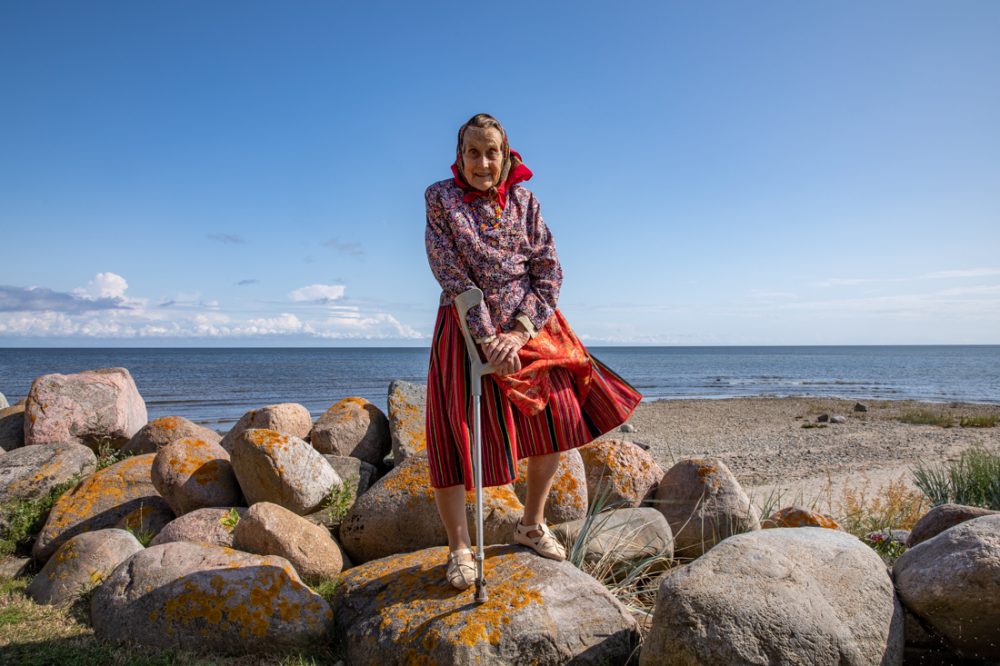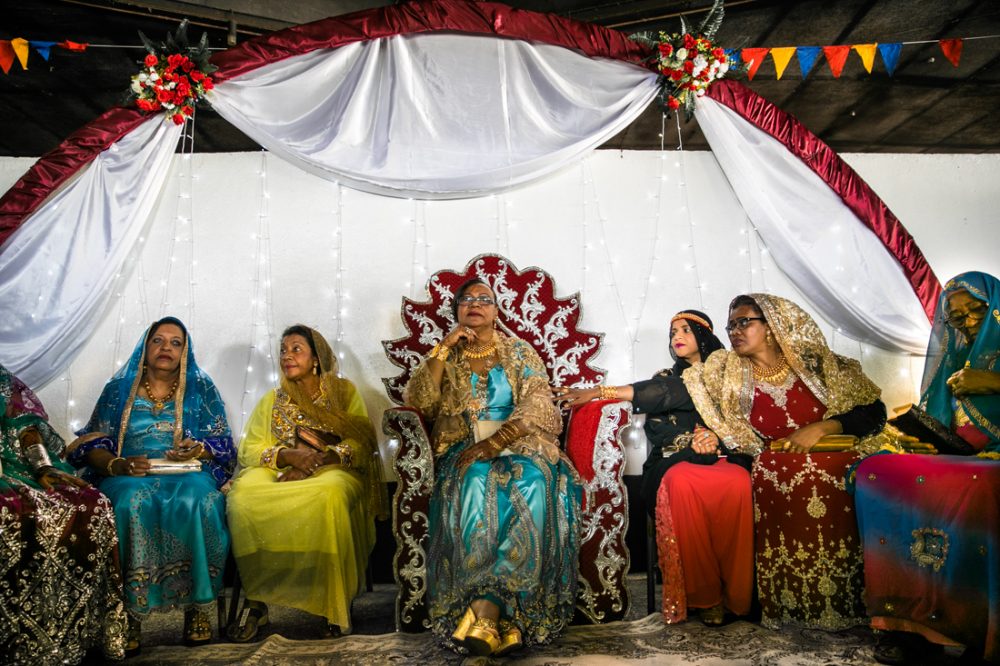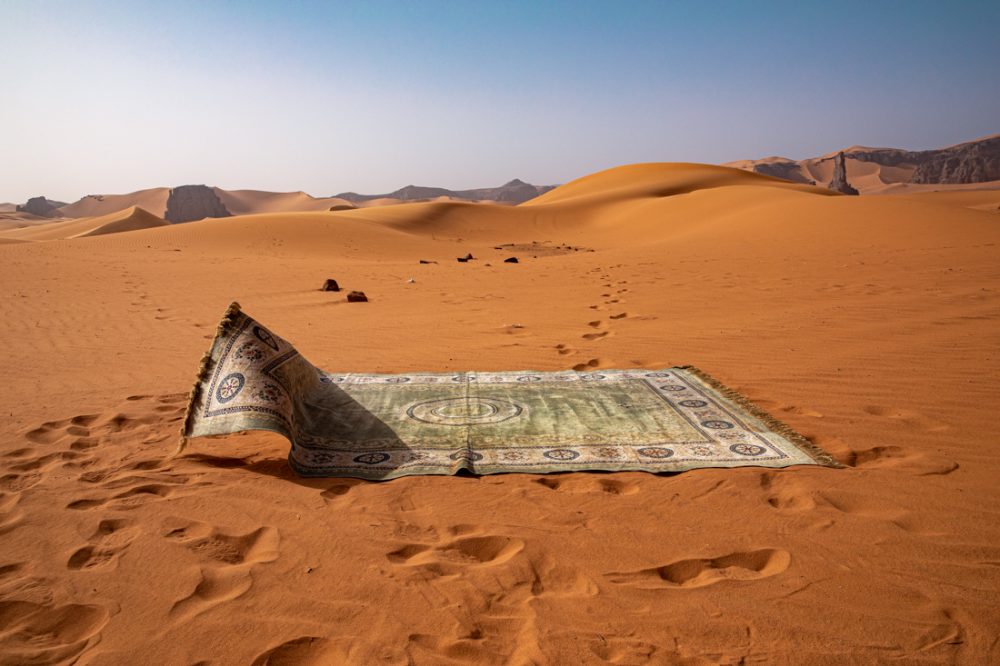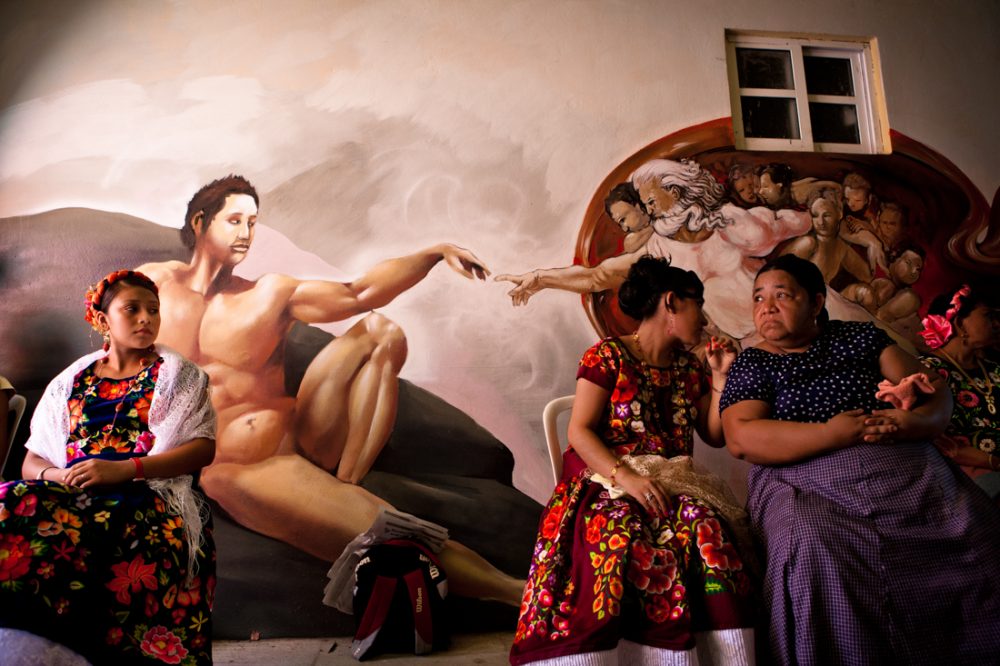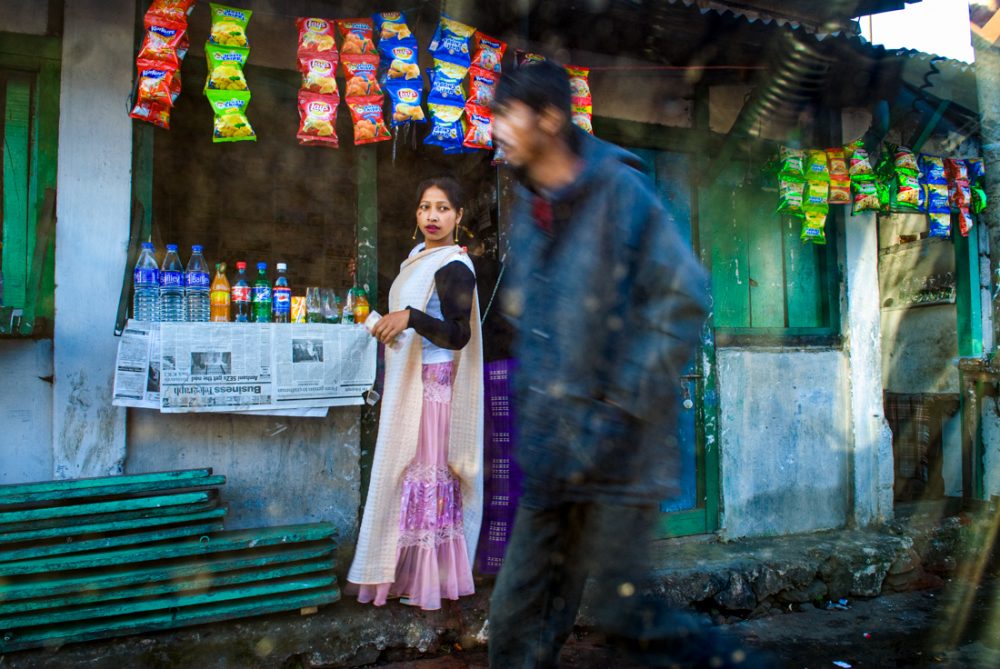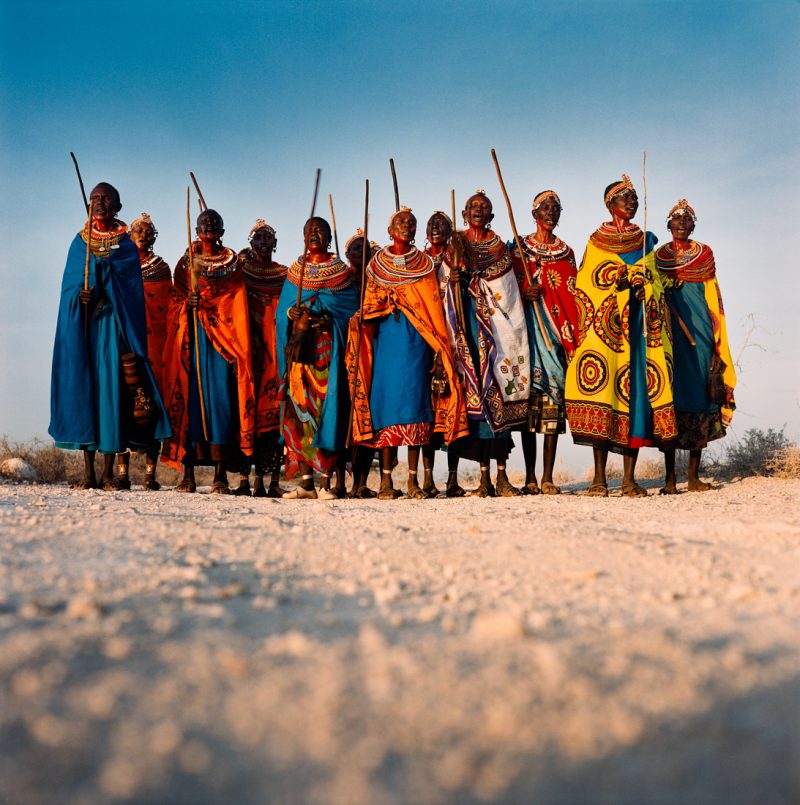Matriarchy
Nadia Ferroukhi
2019 — Kenya, Guinée Bissau, Ouessant, etc
About this series
“Matriarchy refers to a society in which women hold a certain amount of power, but without the hierarchichal, sometimes oppressive characteristics of a patriarchal system. Women play a central socio-economic role, passing on their name, inheritance and land to their descendants: a lineage of women that form the basis and backbone of the clan, based on the concept of maternity law. In a matrilocal society, for example, it is the man who joins the female household and not the other way around.
The women I met in China or Indonesia practice an ancestral matriarchy that resists external pressure. In the village of Tumai in Kenya, persecuted women founded a village without adult men, and found a kind of peace without gender domination. There are atypical cases such as on the island of Ouessant in France, or the island of Kihnu in Estonia, where one could speak of a matriarchy of force majeure: the men went to sea for very long periods, and the women organized life in the island for two centuries. In Cangnabac in Guinea Bissao, Bijago women between the ages of 17 and 35 will be called by the Women’s Council to live in social isolation for three years. On this journey towards wisdom, they obtain the status of Great Woman.
All these women share a desire for unity in male-dominated societies. Weakened by the often-nihilistic discourses of missionaries of all faiths, these communities are today facing cultural globalization and mass tourism that reduces their age-old practices to mere curiosities. How will these micro-communities resist the power of patriarchy? Do the new generations at the centre of these communities have a future? Do local authorities have the will to respect and protect them?”
Nadia’s Ferroukhi’s book Les Matriarches is published by Albin Michel (oct 21).
Photographer: Nadia Ferroukhi
Nationality: French-Algerian
Based in: Paris, France
Website: http://nadia-ferroukhi.com
Instagram: @ferroukhinadia
-Photo Festival Les Femmes s’exposent-Au Nom de la Mère,le Matriarcat en question-France
-Gallery Thorigny – In the Name of Mother – France
-Photo Festival Escales – New York / Brittany – France
-Museum Quai Branly – Le Corbusier Algiers-Marseille – France
-Museum of Modern Art Algeria (MAMA) Arab world cultural year – My Algeria – Algeria
-Museum Quai Branly Photoquai biennal – Le Corbusier Alger / Marseille – France
-Photo Festival Bamako – Family code in Algeria – Mali
-FNAC itinerary exhibitions – Algeria facts and effects 12 years of journalism – France
-Gallery Little Big – Algerian chronicles – France
-Photo Festival L’HO – Life in the Sahara – France
-Bordeaux City Hall – Le Corbusier Algiers / Marseille – France
-OPEC Fund – Algerian chronicles – Austria
-Festival Tchintchine – China – France
-Festival of Solidarity, 2013-2019, billboard for the festival – France
-Centro Cultura Contemporania Barcelona (CCCB) – Algier’s youth – Spain
-Festival Black motion – African Beauty – Italy



